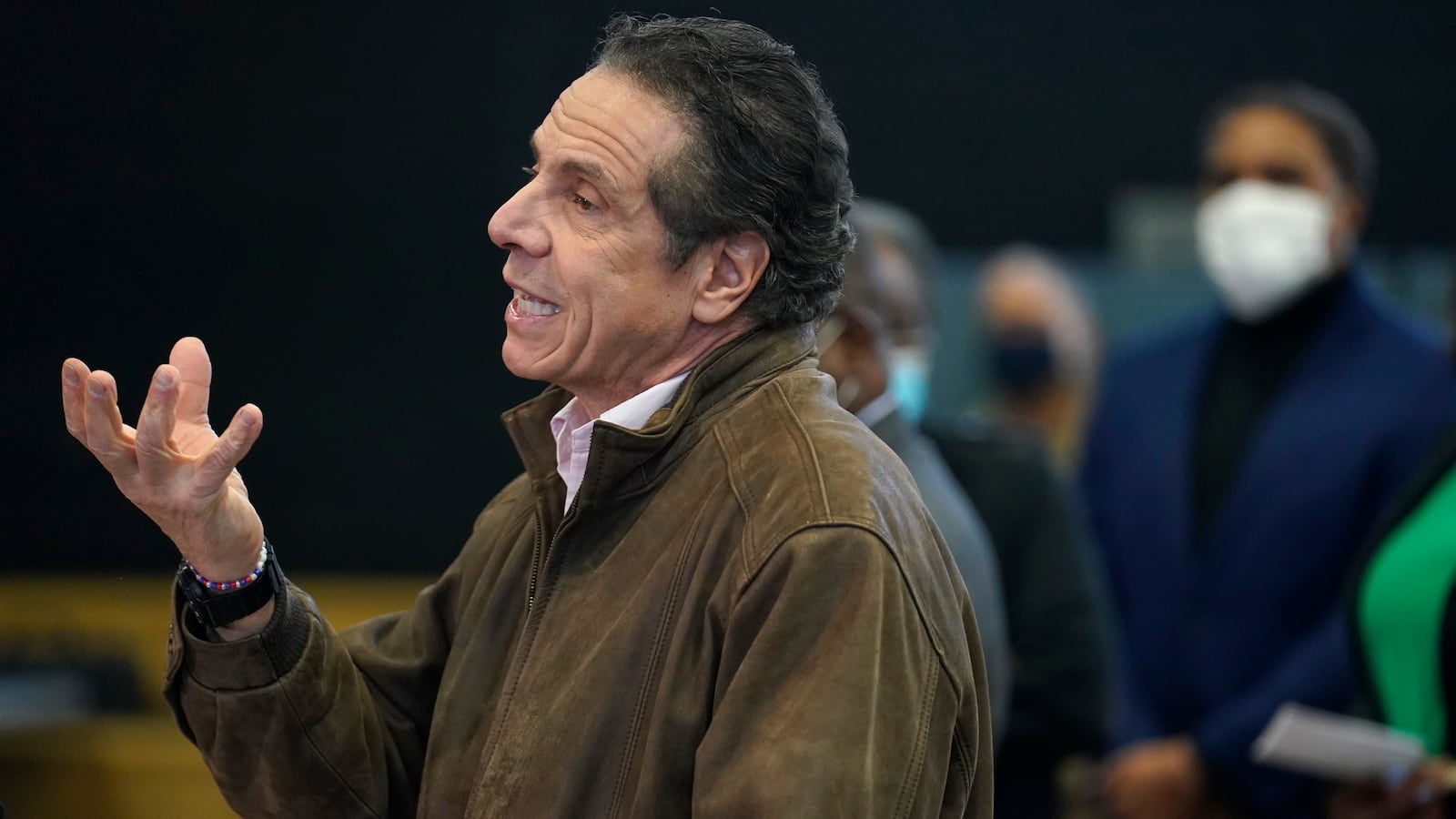After a deluge of new reporting this weekend portrayed a culture of sexual harassment and bullying in his office, embattled New York Gov. Andrew Cuomo on Sunday embraced his defense of choice: tradition.
It was not enough to stop top Democrats from turning on him.
"If customs change, I’ll change—the customs and behaviors,” Cuomo said during a Sunday afternoon conference call with reporters, in response to an article published Saturday by The Wall Street Journal. In it, former staffer Ana Liss said Cuomo asked if she had a boyfriend, hugged her, kissed her on both cheeks, and grabbed her waist for a photo.
“Did I take a picture with Ms. Liss? Yes, I took a pic with Ms. Liss,” Cuomo continued. “But taking a picture is commonplace.”
Liss said the behavior was not appropriate, and that it reduced her to “just a skirt.” And almost immediately after the latest, flimsy offering from a once-invulnerable politician came new calls to resign—including from top Democrats in Albany.
“Every day there is another account that is drawing away from the business of government,” said State Senate Majority Leader Andrea Stewart-Cousins.
“For the good of the state Governor Cuomo must resign,” she added, joining a growing, bipartisan chorus of elected officials in the state demanding Cuomo step down.
In addition to the charges leveled by Liss, four other women who worked for Cuomo or had interactions with him have now accused him of touching them inappropriately or making unwelcome sexual comments. Cuomo took aim at one of them, Karen Hinton, who told NBC Cuomo hugged her in an “inappropriate” and “unethical” embrace, and that she could feel the governor was aroused. Her story was also included in a Washington Post investigation that found evidence of decades of “hostile, toxic” behavior in workplaces overseen by the governor.
“What she said is not true,” Cuomo insisted, suggesting somehow that the haters were just out to get him. “And as everybody who has been involved on any level in New York politics knows, she has been a longtime political adversary of mine, highly critical for many many years, and has made many accusations.”
Now in his third term as governor, Cuomo, 63, was until recently basking in the glow of an Emmy win tied to his COVID-19 briefings. He has denied some allegations—including the claim by former aide Lindsey Boylan that he kissed her—apologized for making people uncomfortable and, most consistently, pleaded ignorance about propriety in modern workplaces.
Even as the sexual harassment scandal has snowballed, Cuomo faces federal scrutiny of misleading coronavirus nursing-home death numbers on his watch, as well as a reckoning over his use of raw power in Albany. Most infamously, a state legislator recently said Cuomo called him at home and threatened to destroy him, an accusation Cuomo denied, and one an aide suggested was a lie.
On Sunday, the governor flatly dismissed the idea of stepping down.
“The premise of resigning because of allegations is actually anti-democratic,” he said, veering toward conservative critiques of so-called cancel culture. “We always have done the exact opposite, the system is based on due process. Anyone can make an allegation. But it’s in the credibility of the accusation.”
Some Democrats, like Democratic State Sen. Alessandra Biaggi, have for days now called for Cuomo to resign anyway.
In response, Cuomo offered what was perhaps the most indisputably factual thing he said on Sunday: “I have a newsflash for you. There is politics in politics.”
But on Sunday afternoon, politics did not look to be a game Cuomo had mastery over any longer. Stewart-Cousins was joined by her Democratic colleague in the Assembly, Speaker Carl Heastie, even if he was more tepid.
“I think it is time for the Governor to seriously consider whether he can effectively meet the needs of the people of New York,” he said.







